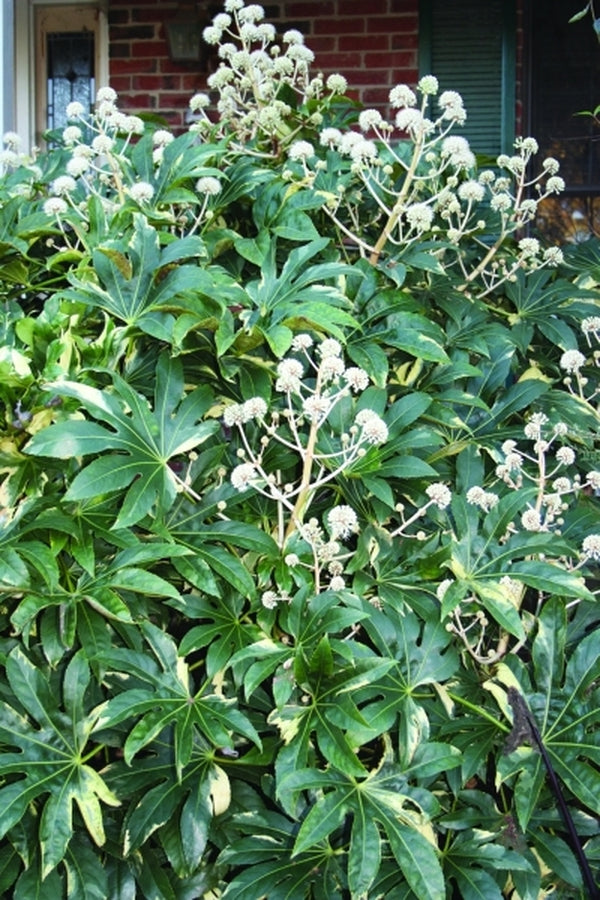Fatsia japonica 'Variegata'
Variegated Japanese Aralia
Item #: 5618
Zones: 7b to 10b
Dormancy: Evergreen
Height: 96" tall
Origin: Japan
Pot Size: 3.5" pot (24 fl. oz/0.7 L)
Fatsia japonica 'Variegata' makes a stunning, bold textured, evergreen shrubby centerpiece for year-round garden interest. Our original plant was shared in the early 1990s by our mentor, the late JC Raulston, who searched for fifteen years before locating this in the UK. Our 27 year old garden specimen, composed of thick, upright woody stems, and clothed with large, tropical-looking, lobed evergreen leaves, each edged with an uneven white border, now measures 8' tall x 10' wide. In late October/early November the clumps are topped by fascinating floral sprays of white flowers that attract an array of pollinators. Variegated Japanese aralia is shockingly winter hardy, far more so than the typically sold green forms. From Zone 7a and north, it makes a great houseplant.
Maintenance:
Japanese fatsia is a low maintenance shrub, suited for outdoor gardens from Zone 7b and south, where it forms an informal shrub to approximately 7' in both height and width. It needs virtually no maintenance if planted with the proper initial spacing.
As an evergreen, it does shed leaves, but just not all at the same time. Fatsia will go through a late spring leaf drop of the older foliage after the new leaves have emerged.Flowering typically takes place in October and November, followed by clusters of black fruit if the winter temperatures are mild enough.
Japanese fatsia is a woodland plant, but in gardens it thrives both in shaded conditions as well as in half day sun. We have found a significant difference in winter hardiness of seed-grown plants, so strongly recommend sticking with selected, clonally-propagated selections as opposed to cheaper seed-grown plant, although these may be fine if you are growing it as a house plant.
Fatsia japonica does make a good, albeit large house plant. Grown indoors, spider mites are usually the worst pest you will encounter.
Watch our Plant Spotlight video for more information.



-
Related Articles
-
Other Attributes
Genus: Fatsia
Flower Color: White/Cream
Leaf Color: Green , Variegated , White/Cream
Bloom Time: Fall
Garden Themes: White Garden
Other: Dry Shade Plants , Plants from Japan , Tropical Looking Plants , Wet Shade Plants , Xeriscaping Plants , Colored Foliage , House Plants




